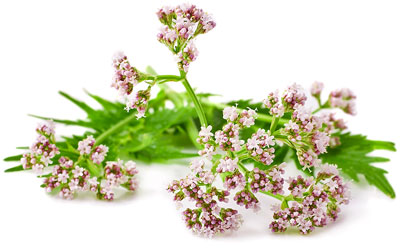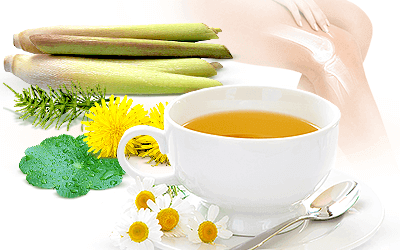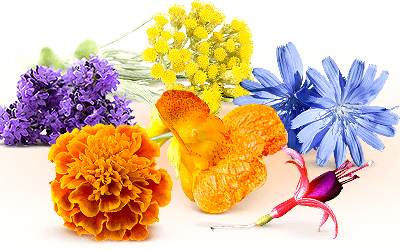Studies have shown that insomnia could be partially hereditary.1
Getting to sleep is not always as simple as turning the lights off and climbing into bed. Sometimes, no matter how tired you feel, sleep just won't come. This may be due to worries, stress, or simply an inability to switch off. Doctors recommend between six and nine hours of regular sleep for adults per night, but this is often easier said than done.2 In such instances, herbal sedatives can be a natural, yet effective, way of achieving deep and restful sleep to help you function at your best during the day.
1. Valerian (Valeriana officinalis)
The volatile oils in valerian roots and stems have sedative and therapeutic properties, which can reduce stress and help promote restful sleep. In fact, this herb was widely used by the English during World War II to help people relieve anxiety during air raids. Valerian root can be added to bathwater or taken in supplementary form to promote relaxation. Due to its bitter taste and unpleasant odor, it is rarely consumed raw.
2. St. John's Wort (Hypericum perforatum)
St. John's Wort is a wild plant with bright yellow flowers. Both the flowers and the leaves of the plant have relaxant and therapeutic properties that can be consumed in pill or liquid form as both an antidepressant and a sedative.
3. Saffron (Crocus sativus)
Saffron is an Asian native known for carrying the title of "World's Most Expensive Spice," thanks to the delicate labor involved in hand-picking its orange and yellow flowers. It may not be cheap, but saffron contains large quantities of crocin, the compound often used in painkillers and children's medicine to invoke drowsiness. Its distinctive aroma also has sedative effects when used in aromatherapy.
4. California Poppy (Eschscholzia californica)
California poppy should not to be confused with the opium poppy (Papaver somniferum), which belongs to a different genus. California poppy is completely legal and has been brewed into teas by Native Americans for centuries, thanks to the relaxed and content state of mind it induces.
5. Passion Fruit (Passiflora edulis)
Passion fruit, a popular fruit with citrus flavor, originates from Peru. It can be consumed raw or drunk as a tea to promote calmness, relaxation, and sleepiness. It also induces physical relaxation by acting as an antispasmodic, relieving muscle pain.
6. Passion Flower (Passiflora incarnata)
Passion flower is a fast-growing, perennial vine closely related to passion fruit. It is becoming more popularly cultivated for the visual beauty of its flowers, but the herb also has a long-standing medicinal uses. This vine has anxiety-relieving sedative effects that are almost identical to that of passion fruit, although it has also been traditionally used to treat narcotic addiction.
Herbal remedies will not necessarily provide an immediate antidote to insomnia. If consumed regularly, it is more likely that the noticeable sedative effects of these herbs will manifest themselves in your body slowly over time. In the meantime, be patient, and look for ways to make your evening routine and sleeping environment more conducive to achieving restful sleep.
Sources
- National Center for Complementary and Alternative Medicine, St. John's Wort for Depression, 2013
- National Health Service, How to Get to Sleep, 2012
- National Institutes of Health, Passion fruit | St. John's Wort | Valerian
- Office of Dietary Supplements, Valerian, 2013
- United States Department of Agriculture, Sedatives, 2014
Footnotes:
- Molecular Psychiatry. (2018). Genome-wide analysis of insomnia disorder. Retrieved February 19, 2021 from https://www.nature.com/articles/s41380-018-0033-5
- Sleep Health. (2015). National Sleep Foundation's sleep time duration recommendations: methodology and results summary. Retrieved February 19, 2021 from https://pubmed.ncbi.nlm.nih.gov/29073412/







